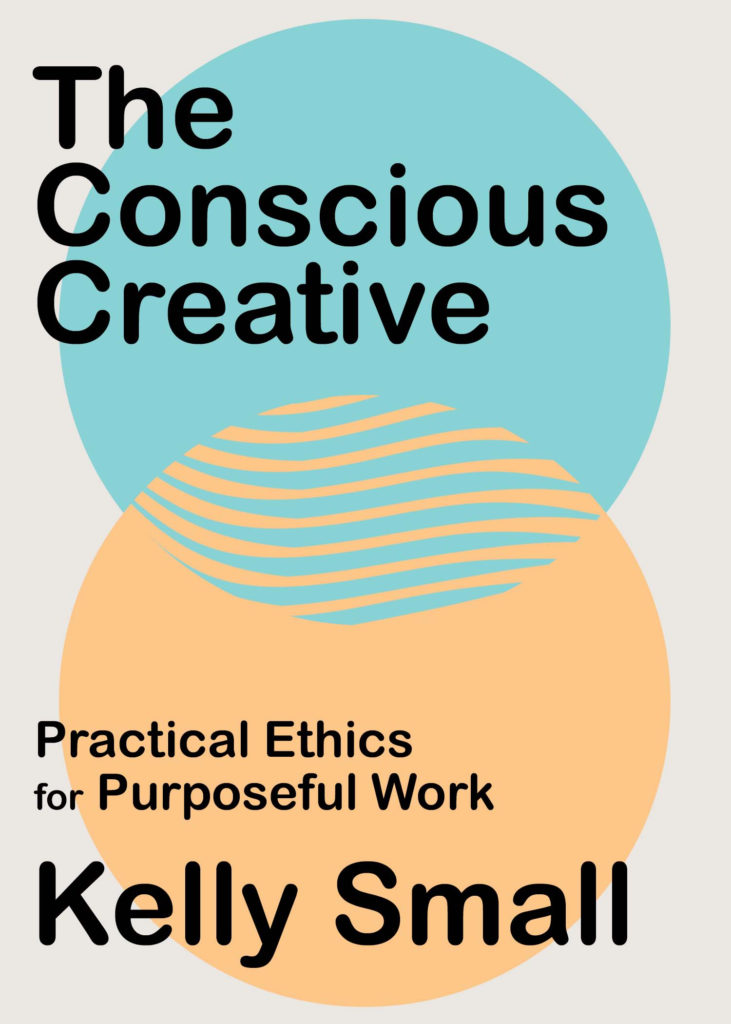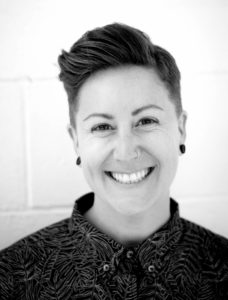Reviewed by Wanda Deschamps (October 6, 2020)
The Conscious Creative: Practical Ethics for Purposeful Work, Kelly Small, House of Anansi, August 4, 2020, 232 pp., $21.81

Given our collective heightened sense of awareness for self-improvement during the 2020 pandemic, The Conscious Creative is timely.
Author Kelly Small draws from their years of experience as a creative director in advertising to build an argument that the creative industry is long overdue for an ethical detox. This guide of practical and actionable steps, however, has application well beyond current or formerly employed creative professionals.
Small’s points are made in a logical and easy to follow format. Four categories—personal, economic, social and environmental—are designated for attention. Using their own life as an example, Small shares childhood and cultural influences,
“I grew up at the mall. I was born into a family whose livelihood relied on the exploding consumer culture of the ‘80s and ‘90s. My father ran shopping centres. My mom managed finances for several of the stores within.”
If you pause now, and reconsider your childhood influences, you are not alone. The Soul Search is one of Kelly’s more than one hundred actionable steps. Create to reduce consumption is another.
One of the many strengths of the book is that it can be put down to take a break, check the reference notes or search more on a topic, and then picked up again. A glossary at the back for definitions of terms such as ableism.
Small’s wit is dry. Sitting somewhere in between Soul Search and Create to reduce consumption is Don’t expect to solve the problem is a dose of sage advice,
“Let’s collectively exhale as we release ourselves from the crushing responsibility of having to solve the world’s most complex systemic problems. Though many of us have been told over the course of our creative lives that our roles are synonymous with problem solving, we now know a little better.”
Although as a member of the varying ability population I am biased towards it, Get obsessed with accessibility is particularly strong part of the book. Small hits on a salient point that others often miss by conflating the number of people with disabilities and the ageing population, underscoring that disability can be acquired throughout the lifespan and not always present at birth.
Small also underlies why and how inclusivity and diversity can lead to accessibility,
“Accessible creative output and practice should also be inclusive. An important aspect of creative inclusivity is ensuring that a diverse set of decision makers are represented throughout the process of working on a project. That means people with differing abilities—physical, cognitive, mental health, et cetera—support key creative decision making throughout.”
In other words, have the people most impacted by the decision been involved in the decision-making? This seems so straightforward, so why don’t we do it? Small provides one explanation from their own creative background,
“these inflexible methods of imparting ethical guidance aren’t particularly accessible nor are they designed to vibe with the fluidity and multifariousness of our everyday working lives.”
Small was working in a traditional ad agency and had a nonprofit client. Being part of the nonprofit world contributed to their life altering decision to leave traditional agency work environment behind. Those who work in the nonprofit field may feel uplifted that Small saw it as a more human option to the private sector.
Not everyone can do what Small did … “[I] quit my job and sold or donated almost everything I owned” in response to their dissatisfaction (even if we might want to).

Steps such as Listen first, Read up and Be community-minded, however, are possible for anyone. Bringing forward positive change can start by increasing one’s awareness of what isn’t working and why. It can also start with creating your own values driven practice. Small graciously offers that you can tweet them for a conversation if you have a values-driven practice they did not mention. (I already have one and am going to reach out.)
The Conscious Creative is the right book at the right time. As we move deeper into our worldwide pandemic and longstanding pre-existing inequities are further brought to the fore our need for positive change is rooted in an overhaul of societal systems. This starts with actions by each of us.
Small has given us an opportunity to get started and in doing so positions as a relevant and relatable advocate, activist and influencer.
(Wanda Deschamps is founder and principal of Liberty Co, a consultancy working to increase the participation level of the neurodiverse population in the workforce.)
Also reviewed by Wanda Deschamps
The Power of Disability: A book about life, June 9, 2020
I Overcame Autism: Moving autism further into the public conscience, April 28, 2020